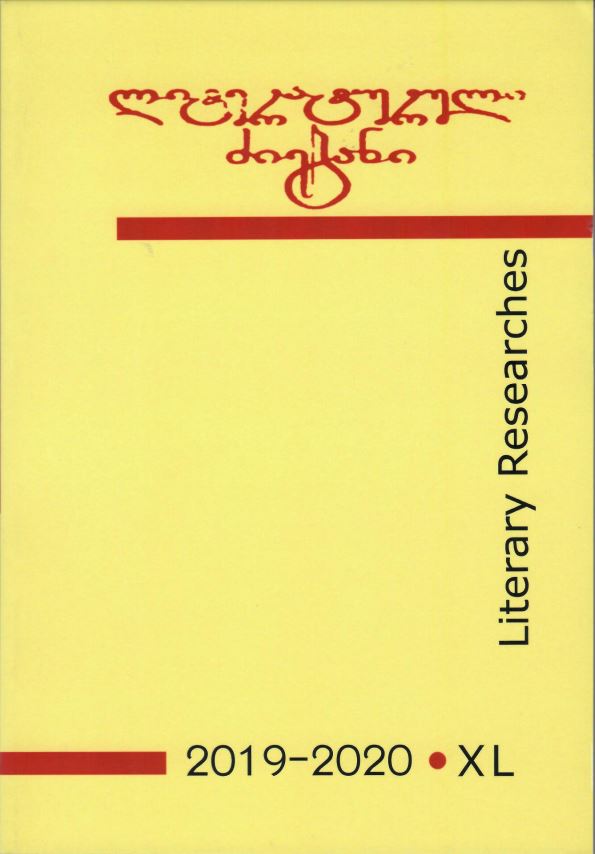გამოქვეყნებული 2020-10-20
საკვანძო სიტყვები
- Late Middle Ages,
- Renaissance,
- Neoplatonism,
- Old Georgian Literature,
- Original Georgian Philosophy
როგორ უნდა ციტირება
ანოტაცია
The problem of Georgian Renaissance and periods of old Georgian literature is researched by Georgian scientists through the years. According to their conceptions, old Georgian literature is divided into periods which are parallel periods of West-European literature from the Middle Ages to the Renaissance.
Oriental and Western cultural and world-view trends found reflection in old Georgian literature on national ground: Classical Greek, particularly Neoplatonic and Aristotelian, philosophical elements, popular in 12th-13th centuries intellectual circles were introduced into the Christian religious ideology.
According to Georgian scientists (Korneli Kekelidze, Shalva Nutsubidze, I. Kenchoshvili, E. Khintibidze, M. Karbelashvili and others) conceptions, in the process of European civilization Georgian Late Middle Ages (10th-13th centuries) mark a transitional period from the Middle Ages to the Renaissance.
The basis of Georgian Renaissance is original Georgian philosophy. The originality of Georgian philosophy is researched by Sh. Nutsubidze. According to his conception, original Georgian philosophy was developed through the centuries. Mainly three teachings went into the making of originality of Georgian philosophy: a) higly developed theology; b) Platonic and Neoplatonic philosophy which Georgian philosophers approache principally through the PseudoDionysius the Areopagite, c) Neoplatonist; d) Aristotle’s philosophy.
The typical and pivotal elements of Late Medieval, i.e. early Renaissance world outlook found reflection in Georgian thinkers works. Of these elements essential, on the one hand, is the retention of the medieval ideal, and on the other, its synthesis with those new tendencies which in the future – in the Age of Renaissance features, i.e. a harmony at whose level the contradiction between the above two elements, which came to the fore in the future, is not noticeable. From this point of view in Western Europe Dante Alighieri’s work comes closest to that of Rustaveli. This typological relation of Rustaveli’s outlook to that of Dante’s work is determined not by the individual artistic specificities of these great poets and thinkers, but by the processes of social, political and cultural development of the age, and by the similarity of Christian thinking in Georgia and Western Europe in the Late Middle Ages.
That’s why the main tendencies of the antiquity and Middle Ages are the basic key to the Renaissance as well as the Georgian antiquity and Georgian Middle Ages are the basic key to the Georgian Renaissance which involves main categories of the European Renaissance, as well as the East Renaissance.

